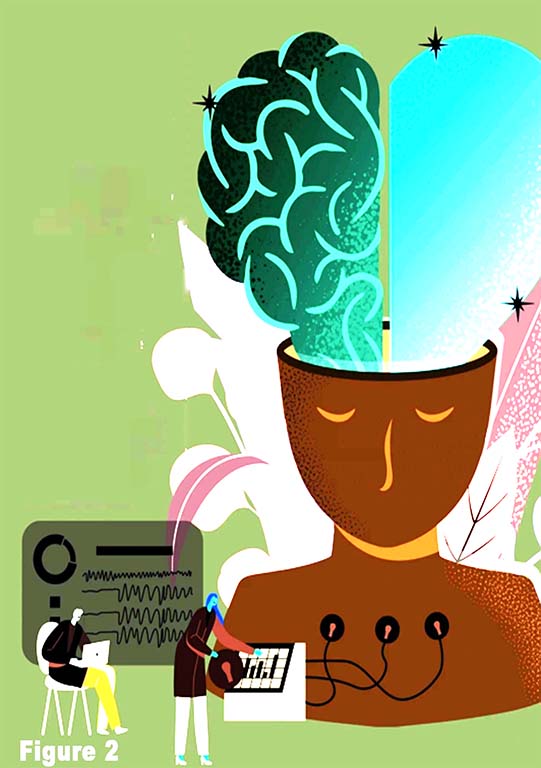We so often think of intelligence in terms of being smart, doing well at school academically, or acing an IQ test. But what if the most important form of intelligence isn’t our ability to acquire and apply knowledge but in the way that we are aware of and in control of our emotions?
Emotional intelligence (EI) isn’t something we’re actively taught at school, and yet it can greatly impact our journey through life and our interpersonal relationships. In a 2018 article, A New Layered Model on Emotional Intelligence, states that emotional intelligence focuses on the character and aspects of self-control, such as the ability to delay pleasures, the tolerance to frustrations, and the regulation of impulses.
It’s an area of increasing interest to researchers, with numerous studies looking to unlock the secrets of our emotional intelligence and its importance to our well-being. It is not, by any means, a new concept. Aristotle wrote about the ability to master our emotional capacity almost 2,000 years ago with the right person, to the right degree, at the right time, and in the right way.
Some experts in this area would argue that emotional intelligence, or our Emotional Quotient (EQ), is more important than IQ (Intelligence Quotient) when it comes to success in life. One of the best-known writers on the subject is Daniel Goleman, whose 1995 book Emotional Intelligence: Why It Matters More Than IQ is often considered one of the most comprehensive insights into emotional intelligence. “We have gone too far in emphasizing the value import of the purely rational measures in human life,” he writes. “For better or worse, intelligence can come to nothing when the emotions hold sway.”
So, emotional intelligence matters a great deal. Being able to control your emotions and express them, as well as understand the emotions of others and respond to them, can work to your advantage in personal, social, and work environments. But don’t worry if you don’t possess all of these skills; emotional intelligence can be improved and developed.
Signs and benefits of being emotionally intelligent
How do you know whether you are emotionally intelligent or not? There are various tests available online, though many of these free tests are to be taken lightly. Psychologists have more in-depth testing processes that can determine a person’s emotional intelligence. It is also not uncommon these days for hiring managers to use some form of emotional intelligence testing to consider candidates for a role, identifying those who will contribute meaningfully to the team environment and cope well under pressure.
There are some identifiable signs of emotional intelligence. Daniel Goleman’s theory suggests that there are five components of emotional intelligence: self-awareness, self-regulation, motivation, empathy, and social skills. You might notice elements of these within yourself. Some of the signs can include:
A good level of self-awareness, including knowing your strengths and weaknesses
Being able to own up to and accept responsibility for your mistakes
Not dwelling on past mistakes and letting things go
Being able to explain and describe what others around you are feeling
A high level of empathy for others
Those with a high EQ are also good with other people. That can mean dealing with people who are upset or angry in a tactful and respectful way. At work, this can mean that you’re able to assess how the people you’re working with are feeling and help steer conversations in the right direction. It also means you’re able to listen to and take on board other people’s points of view. You might also be better at negotiations and influencing the outcome of presentations by being able to adapt your behaviour to suit the people you are speaking to.
As you’re more likely to be able to own up to mistakes and take responsibility for them, you may be considered honest and trustworthy. You’re also more likely to be a good listener and confidant, which can enhance your personal relationships. It can also mean that you’re more positive and able to find the good, even in bad situations. This can improve your mental health and well-being. You are also more likely to be highly motivated, meaning that you can achieve success in different areas of your life and not give up when things are hard.
The other side of emotional intelligence
This all sounds very positive and highlights the importance of a high EQ. However, there are drawbacks to having a very high level of emotional intelligence, too.
For example, according to the article ‘The Downsides of Being Very Emotionally Intelligent’, one of the problems is that those with a high EQ might lack creativity and innovative thinking. The reasoning is that it can be hard to challenge a status quo or convention that keeps people happy rather than trying something new that may cause a little disruption. Also, while people with a high EQ are great at building team relations, they’re less likely to be able to deliver negative feedback or upset people by disagreeing with them, as they are so aware of how this might make people feel and sensitive to that. Those with high EQ might also be risk-averse, which can limit innovation.
Another downside is that by being so empathetic, a person who is quite emotionally intelligent can end up taking on a lot of worry and stress on behalf of other people. They may also spend a lot of time trying to help those around them and be at risk of burning out. So, while our EQ is incredibly important, we also need to use some of that self-awareness to know when to step back from situations and allow for some self-care. There is also a lot to be said for allowing spontaneity and risk to play a part in all our lives.
At the other end of the spectrum, there are those who have a low level of emotional intelligence, which can bring about a different set of problems. Those with a low EQ might find that they are often misunderstood or find it hard to assert themselves in conversations. They may struggle to read other people’s feelings and emotions or be unsure of how to react when someone is angry or upset. They might even behave in a way that comes across as insensitive, uncaring, or unsympathetic – not intentionally, but because of this difficulty in understanding the emotions of others and not knowing how to express their own emotions.
Another issue is that a lack of emotional awareness can lead to becoming overwhelmed by emotion and getting upset, or lashing out, easily; or it might mean that we don’t express emotions at all and repress a lot of our feelings rather than deal with them. Those with a lower EQ might blame others for mistakes rather than take ownership of them and have poorer coping skills, including walking away from situations instead of confronting them.
How to improve your EQ
It’s important to note that a low EQ and difficulty in controlling emotion can sometimes be a symptom of a mental health problem, such as depression or anxiety. If you feel like your ability to control and identify your emotions has changed, and you have other symptoms of a mental health issue, it’s important to talk to a medical professional.
Other things can also impact our EQ, such as how we were treated in childhood by caregivers. Not all children are encouraged to name and express the emotions that they are feeling, so they don’t develop the skills needed to be emotionally intelligent as adults. Some of us are also more naturally emotionally intelligent than others.
Whatever level you feel your EQ is at this moment, there are things you can do to improve it. Some studies show that emotional intelligence is a skill that can be built and developed with practice. It involves spending time with yourself and thinking about your emotions and how you react in different situations. Also, spend time considering comments that others might have said about you or to you. Has it been mentioned that you don’t always pick up when someone is upset, for example, or that you don’t listen? Acknowledging these comments can help you to highlight the areas to start improving. A journal can be a useful tool to help you notice areas for improvement in this period of self-reflection.
You can also improve your emotional intelligence by spending time with others. Make an effort to really listen to what people are saying, and ask questions that show you are paying attention. Watch people’s body language and see what you can learn from this about the way they are feeling. Try to empathize with others’ situations, even if their lives and experiences are far removed from your own life.
In sum, with practice and patience, you can build and improve your emotional intelligence and reap the benefits of success, happiness, and self-awareness.
Reference: Understanding Your Emotions 1st Edition 2023
Being able to control and manage your emotions, even in difficult situations
Confidence in yourself and acceptance of who you are
Curiosity about other people and the world around you
The ability to accept change in your life
You may identify with some, none, or all of these, which can give an indication of your level of emotional intelligence. Looking at Goleman’s five components (see Figure 1), you might feel that you are strong in some areas and less so in others, which in itself takes a degree of self-awareness to be able to understand this about yourself.
There are benefits to having a high EQ. For example, it might mean that you’re better equipped to handle difficult or stressful situations. You may be more able to remain calm yourself and help others in the same situation. It might also mean that you’re less likely to turn to external and unhealthy coping mechanisms, instead being able to manage the emotions you are experiencing.















